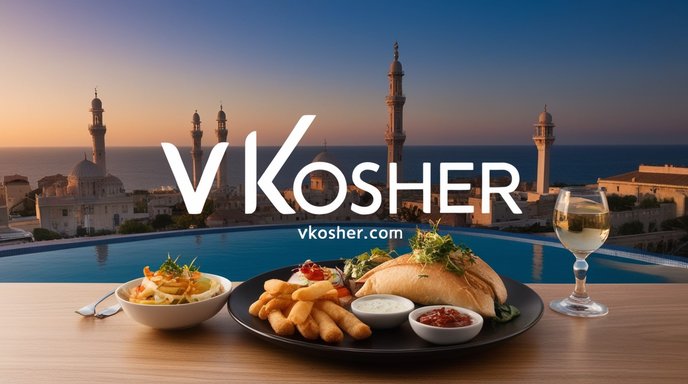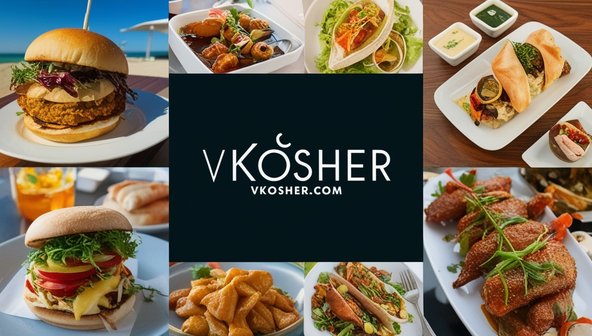The Rise of Kosher Pop-Up Restaurants
Kosher pop-up restaurants have gained significant traction in recent years, becoming a prominent trend within the culinary world. These temporary dining experiences offer a unique way for chefs to showcase their creativity, while also catering to the growing demand for kosher cuisine. The pop-up concept itself is not new, but the integration of kosher food into this model has brought fresh perspectives and innovations to both the kosher and mainstream food scenes.
What is a Kosher Pop-Up?
A kosher pop-up is a temporary restaurant or food event that adheres to the dietary laws of kashrut, which dictate what is permissible for Jews to eat according to Jewish law. These pop-ups often take place in various settings, from rented spaces and private homes to outdoor venues and existing restaurants that temporarily convert to kosher operations. The flexibility of the pop-up model allows chefs and restaurateurs to experiment with new concepts, menus, and locations without the long-term commitment of a traditional brick-and-mortar establishment.
The Appeal of Kosher Pop-Ups
The appeal of kosher pop-ups lies in their ability to offer something new and exciting within the kosher food community. For many consumers, particularly those who keep kosher, dining options can sometimes feel limited, especially when it comes to innovative or gourmet cuisine. Kosher pop-ups fill this gap by providing access to unique dishes and culinary experiences that may not be available in traditional kosher restaurants. Additionally, these events often attract a diverse crowd, including non-kosher diners who are curious about kosher cuisine or simply drawn to the novelty of a pop-up event.
Culinary Innovation and Creativity
One of the most significant advantages of kosher pop-ups is the freedom they offer chefs to experiment with new dishes and flavors. Without the constraints of a permanent menu, chefs can take risks and explore creative combinations that might not be feasible in a traditional restaurant setting. This has led to a surge in innovative kosher cuisine, with pop-ups offering everything from kosher sushi and fusion dishes to gourmet kosher versions of classic comfort foods.
Kosher pop-ups also allow chefs to collaborate with other culinary professionals, including those from outside the kosher community. These collaborations can result in exciting fusion menus that blend kosher traditions with other culinary influences, further expanding the possibilities of kosher cuisine.
The Business Side of Kosher Pop-Ups
From a business perspective, kosher pop-ups provide a relatively low-risk way for chefs and restaurateurs to test new concepts. The temporary nature of a pop-up means that overhead costs are often lower than those of a permanent restaurant, making it easier to experiment with different ideas. Additionally, the pop-up model allows for flexibility in pricing, location, and target audience, enabling businesses to tailor their offerings to specific markets or events.
For established kosher restaurants, pop-ups can also serve as a marketing tool, helping to build brand awareness and attract new customers. By hosting pop-up events in different locations, these businesses can reach a wider audience and generate buzz around their brand. For aspiring restaurateurs, a successful pop-up can serve as a stepping stone to opening a permanent location, providing valuable experience and a loyal customer base.
Challenges and Considerations
While the benefits of kosher pop-ups are numerous, there are also challenges to consider. One of the primary challenges is ensuring that the pop-up adheres to kosher standards, which can be more complicated than in a traditional restaurant setting. Depending on the location and setup, pop-up organizers may need to bring in their own kosher kitchen equipment, utensils, and ingredients, all of which must be properly certified. Additionally, the temporary nature of a pop-up can make it difficult to establish a consistent customer base, as diners may not be aware of the event or may be hesitant to try a temporary restaurant.
Another consideration is the competitive nature of the pop-up market. With the increasing popularity of pop-ups, both kosher and non-kosher, it can be challenging to stand out and attract attention. Successful kosher pop-ups often rely on strong marketing efforts, including social media promotion, partnerships with local influencers, and word-of-mouth buzz to draw in diners.
The Future of Kosher Pop-Ups
The future of kosher pop-ups looks bright, with continued growth and innovation expected in the coming years. As more chefs and restaurateurs embrace the pop-up model, the variety and quality of kosher cuisine are likely to expand, offering even more options for kosher diners. Additionally, the rise of virtual and delivery-only pop-ups could further increase the accessibility of kosher pop-up dining, allowing more people to experience these unique culinary events from the comfort of their homes.
Kosher pop-ups also have the potential to influence the broader culinary landscape, introducing kosher cuisine to new audiences and inspiring non-kosher chefs to explore kosher cooking. As the boundaries between kosher and non-kosher dining continue to blur, kosher pop-ups may play a key role in shaping the future of food and dining.
Conclusion
Kosher pop-up restaurants are more than just a trend; they represent a dynamic and evolving aspect of the culinary world. By offering innovative and exciting dining experiences, kosher pop-ups have the potential to change the way people think about kosher food and dining. Whether you're a seasoned kosher diner or someone new to kosher cuisine, a kosher pop-up is an opportunity to explore new flavors, meet like-minded food enthusiasts, and enjoy a unique and memorable meal. As this movement continues to grow, kosher pop-ups are sure to leave a lasting impact on both the kosher and mainstream food scenes.




